Can American Companies Fully Remove Chinese - Made Parts and Achieve 'De - Chinafication' in Their Supply Chains?
![]() 11/17 2025
11/17 2025
![]() 523
523
On November 15, a report from The Wall Street Journal stated that Tesla has urged its suppliers to cease using Chinese - made components in models produced for the US market. It aims to achieve a 'complete de - Chinafication' of its US - made vehicle supply chains within the next 1 - 2 years. Both Tesla and its suppliers have already substituted some Chinese - made components with those produced elsewhere. Tesla boasts over 400 Tier 1 suppliers in China, with more than 60 of them integrated into its global supply chain system. 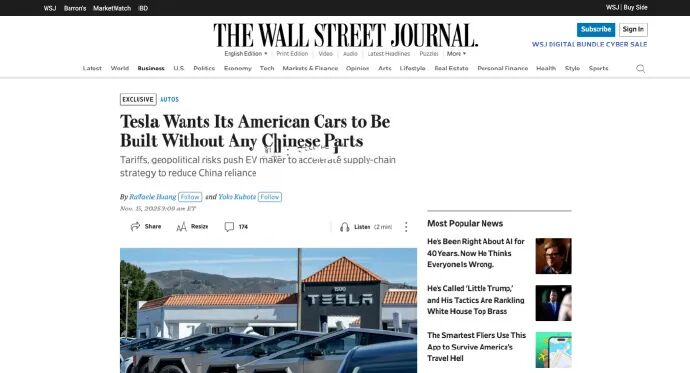
In fact, some details emerged during Tesla's Q3 earnings call. Currently, 100% of its energy storage batteries are sourced from Chinese companies such as CATL and BYD, prompting Tesla to search for alternatives. In addition to considering potential collaboration with Samsung SDI, Tesla has, in recent months, signed chip and energy storage battery supply agreements with Samsung Electronics and LG Energy Solution. 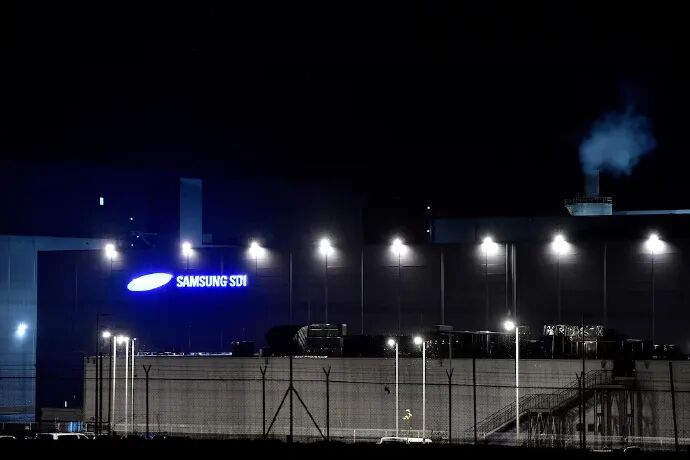
You may think that only Tesla is pursuing de - Chinafication, but General Motors has already taken action! Recently, Western media outlets like Reuters reported that the US automotive giant General Motors has instructed thousands of its suppliers to remove Chinese components from their supply chains, setting a deadline of 2027. This is not an isolated case. Previously, HP and Dell required the exclusion of Chinese components from their supply chains starting in 2025, while Apple plans to shift 70% of its production capacity out of China by 2027. 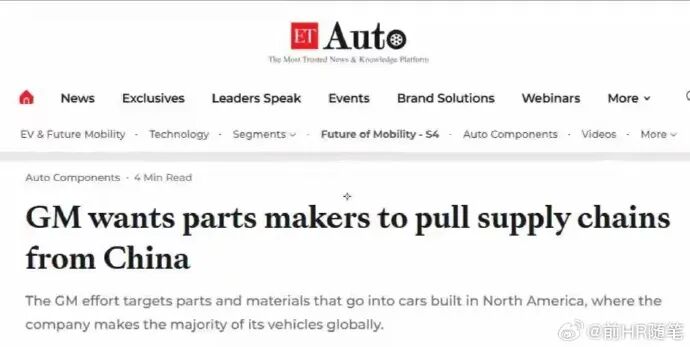
Can American - based supply chains fully achieve 'de - Chinafication'? The reality is that China has long been a pivotal hub in the global automotive industry, accounting for over 40% of the combined global automotive production and exports. Moreover, China holds a dominant position in the automotive components sector. Over 90% of global vehicles rely on Chinese - made components, ranging from electrical lighting devices to braking systems and suspension systems. Chinese supply chains have penetrated multiple stages of automotive manufacturing, even gaining monopolistic advantages in certain components. In particular, General Motors' forced supply chain relocation essentially goes against industrial trends. 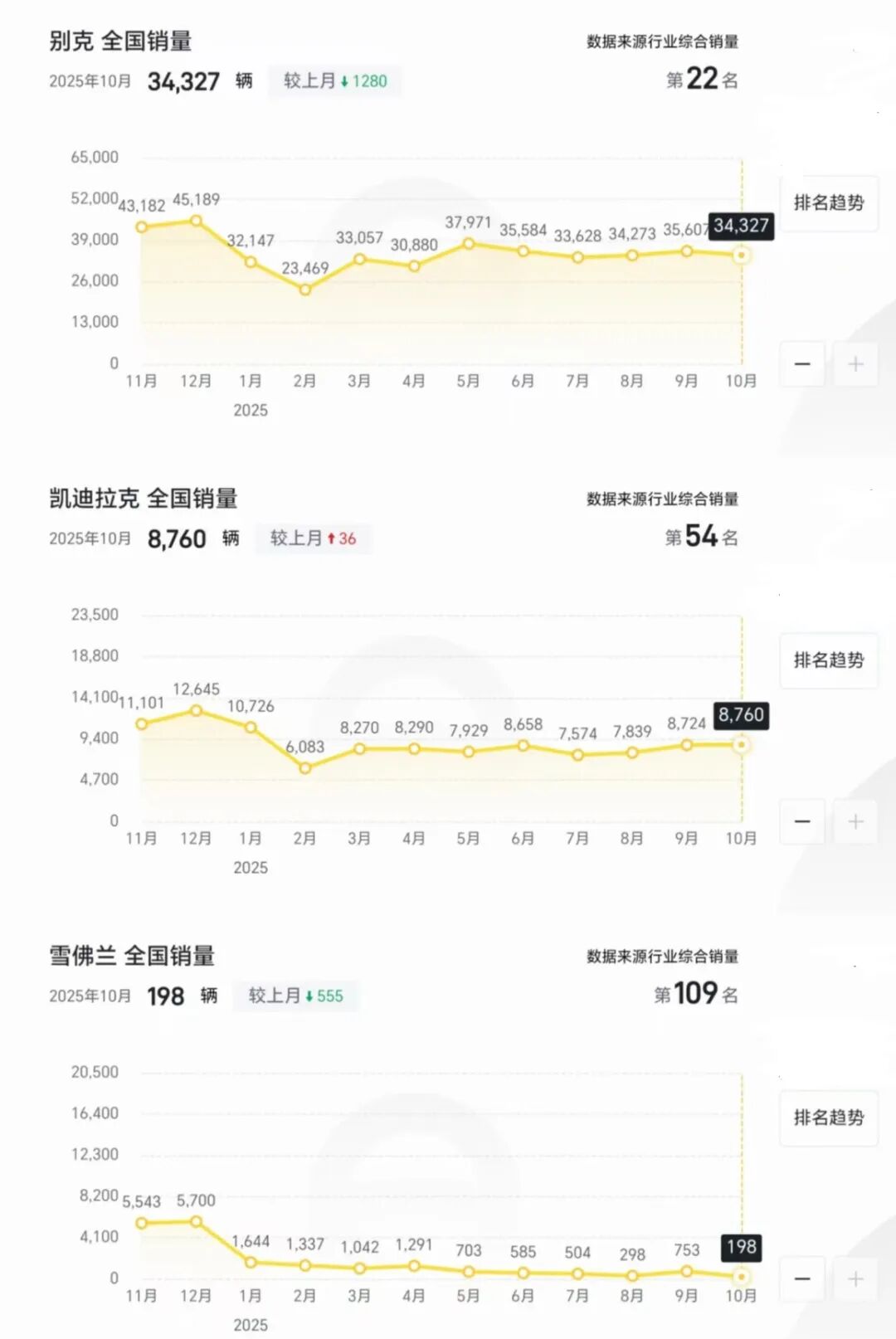
After decades of development, China's supply chains are deeply ingrained. It is unrealistic to find alternatives within a few years. The dominant position of Chinese products in fields such as lighting and electronics is even more difficult to displace. Severing ties with Chinese supply chains would only lead to skyrocketing costs and declining efficiency, ultimately resulting in a 'marginalization' dilemma where companies become synonymous with high prices and low quality. Just look at General Motors now—plant closures, production halts, and sales have been slashed in half! 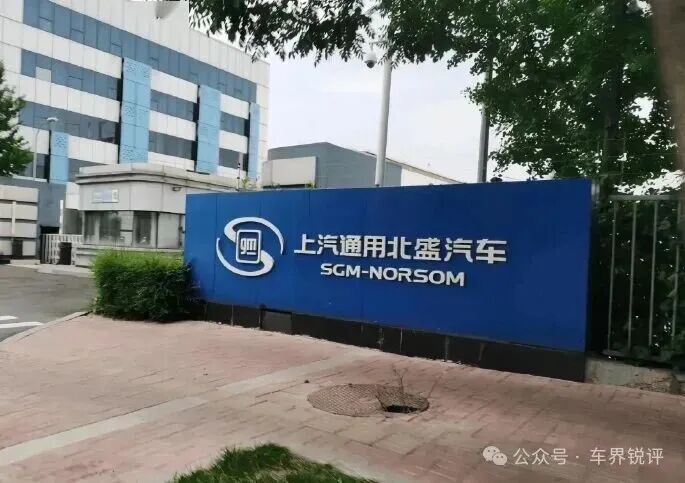
On the other hand, Tesla's Shanghai Gigafactory is one of the most efficient and profitable factories in the world. It not only supplies the vast Chinese market but also exports heavily to Asia and Europe. Unlike its US counterparts, over 95% of the Shanghai Gigafactory's supply chain comes from local Chinese suppliers. 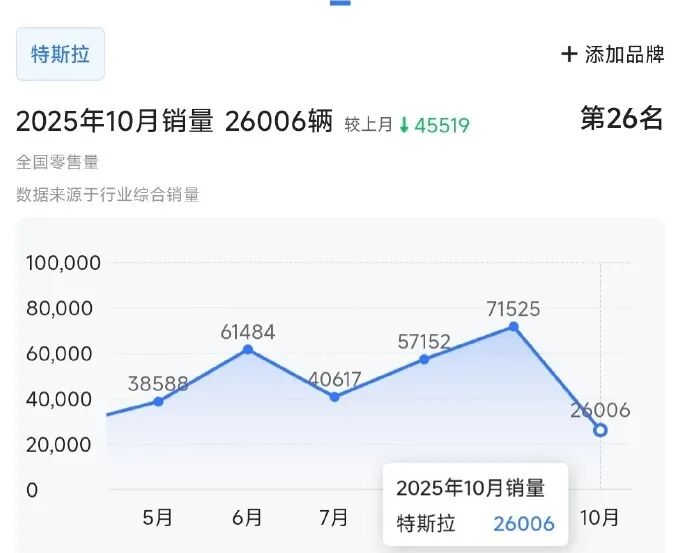
Can Tesla completely eliminate Chinese - made components? Since it cannot fully sever ties with the 'Chinese supply chain,' why is it still 'going against the tide' and pushing for decoupling? A series of moves clearly indicate that American companies are responding to politicians' calls for 'decoupling,' turning slogans into concrete actions. A covert campaign to encircle and suppress the world's most complete industrial chain has quietly commenced. 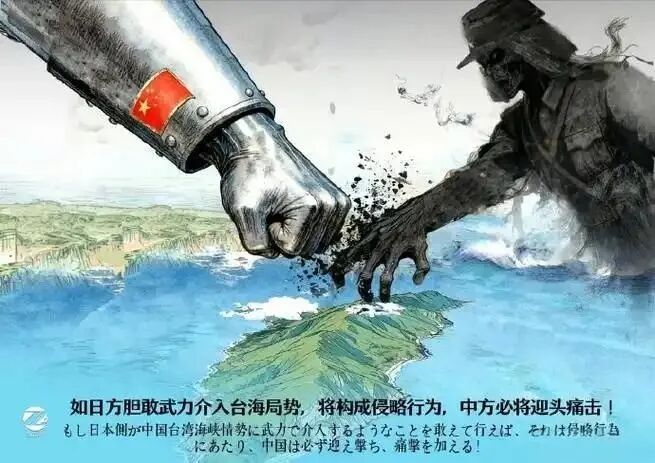
Some claim that this is driven by Anglo - Saxon and Jewish geopolitical maneuvers that will have an impact on us. However, there is no obstacle that is insurmountable. Moreover, consider South Korea—a resource - poor nation that relies entirely on imported raw materials with high costs—yet it persists in replacing Chinese companies. Given the profit - driven nature of business, would Tesla willingly comply? Even if it is willing, not raising prices would thin its profits; raising prices would erode its competitiveness and sales. Any rational business would make the correct choice—global trends are irreversible! I'm curious about how netizens view this 'de - Chinafication' trend. Feel free to share your thoughts in the comments section...








